Stockholm Declaration focuses on reducing urban speed
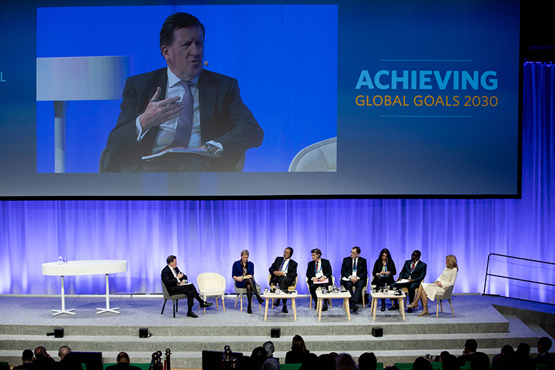
The Stockholm Declaration calling for default 30km/h speed limits on urban streets, prioritisation of Safe System design to enable walking and cycling, a stronger focus on safe infrastructure on highways, and better integration of traffic safety within the Sustainable Development Goals, including the UN’s strategy for children and adolescents, has been adopted by the 3rd Global Ministerial Conference on Road Safety, held in Stockholm, Sweden, on 19-20 February 2020. The FIA Foundation and partners were active throughout the conference in promoting a focused policy agenda on children and youth, safer infrastructure and vehicles, and social justice.
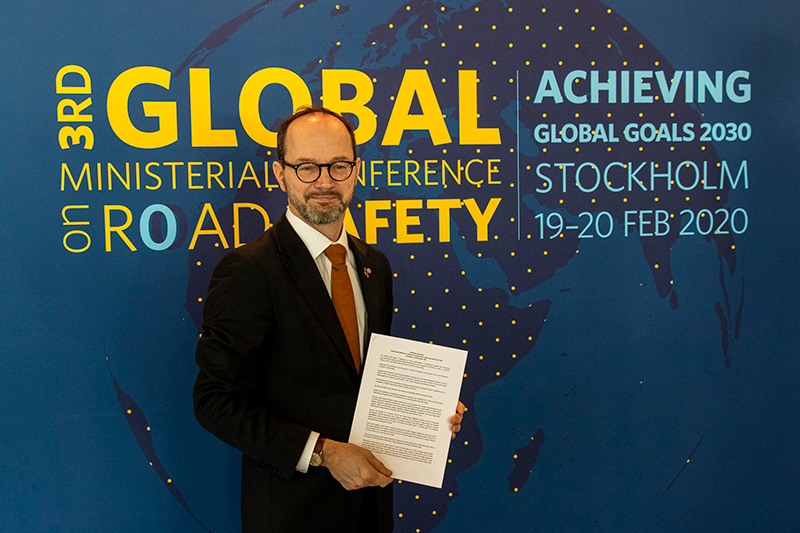
The Stockholm Declaration will now go forward to the United Nations, where an intergovernmental negotiation will result in a Resolution to be debated in April.
To support key action points of the Stockholm Declaration, the FIA Foundation and its Child Health Initiative partners released a ‘Manifesto 2030 for Safe Streets for children, youth and climate’, which details four universal and affordable ‘speed vaccine’ policy measures to promote safe and climate-friendly walking and cycling, and calls for a Global Summit for Adolescents to advance and integrate the agenda, and secure funding, in collaboration with other key youth issues.
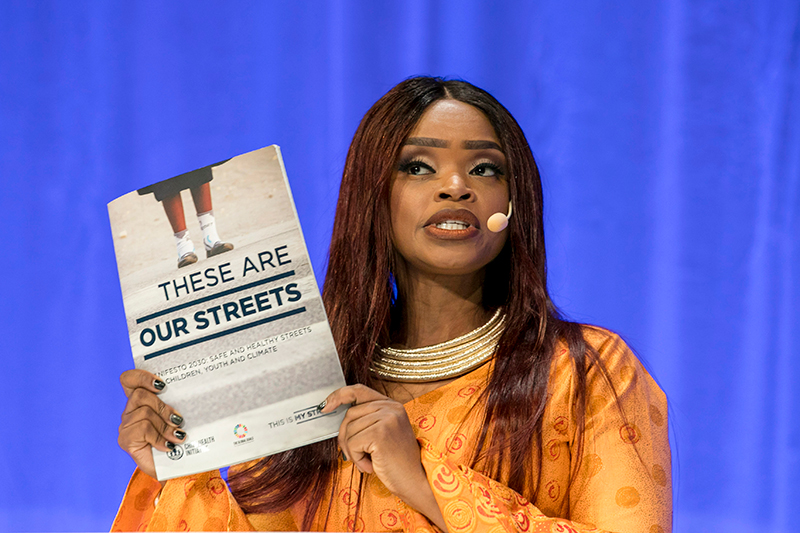
The Child Health Initiative’s Manifesto was launched at a ‘This Is My Street’ pre-event on 17th February, hosted by FIA Foundation Chairman Lord Robertson of Port Ellen, with support from global policy leaders including UNICEF’s Global Chief of Health, Stefan Peterson; Save the Children CEO Kevin Watkins; and UN Special Envoy for Road Safety Jean Todt. A panel of foundations including Bloomberg Philanthropies (which used the Stockholm Conference to announce a new six year, $240 million, investment in traffic safety), Fondation Botnar, Bernard van Leer Foundation and the FIA Foundation, discussed implementation strategies. The four philanthropies have collaborated on the NACTO – Global Designing Cities Initiative ‘Streets for Kids’ handbook. Zoleka Mandela and the FIA Foundation’s Deputy Director Avi Silverman visited the Royal Palace to brief Queen Silvia of Sweden on the call for an adolescent summit and the 2030 Manifesto.
The Ministerial conference, opened by King Carl XVI Gustaf of Sweden, brought together more than 80 ministers and heads of delegation, and 1700 delegates, from 140 countries. Lord Robertson spoke in the Leadership plenary (main photo above) and challenged ministers to demonstrate political will by focusing on speed:
“Are we incapable of seeing that we don’t need to research and invent new expensive vaccines for this international epidemic? They already exist and we know what they are. Slow down, that needs to be our message. Slow down in streets to school. Slow down in crowded cities. Slow down and protect pedestrians. Slow down and protect the air. Slow down and save lives.
Simple. Effective. Life saving. Implementable. And urgent. Slow down!”
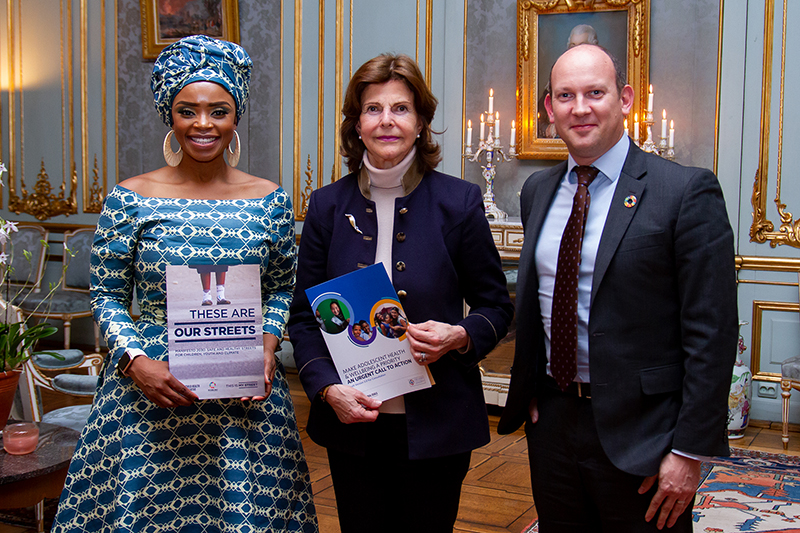
Child Health Initiative Ambassador Zoleka Mandela also spoke in the Leadership plenary, as well as at the official Ministerial Dinner which was hosted by Sweden’s Infrastructure Minister Tomas Eneroth. She told ministers:
“Perhaps we should do more to kick you out of office if you don’t give us the safety we deserve. Maybe this is where we are failing on our part. Here in Stockholm I have been privileged to continue our campaigning with our young people. Believe me, they are rising up. They are ready to take the lead. Together, we are calling for action. We want a Global Summit for Adolescents, with road safety right at the centre. It’s time to stop taking road safety in isolation. We’re looking at all the major issues combined. If you can’t take action for our young people and for our future, who can you take action for?”
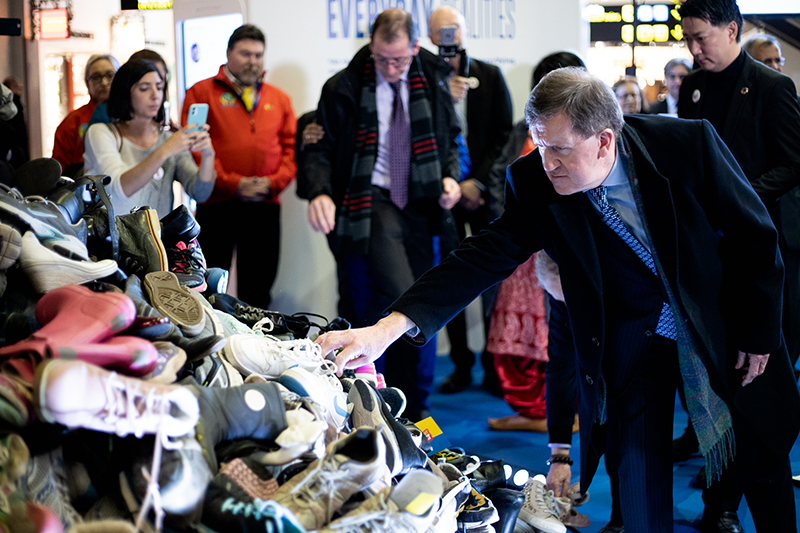
Beyond the main conference, FIA Foundation partners were also active in advancing their practical agenda. The International Road Assessment Programme (iRAP) hosted its Innovation Workshop and published new ‘Vaccines for Roads’ research on the benefits of focusing on raising safety standards on highways and streets, and the human costs of failing to do so. FIA Foundation Executive Director Saul Billingsley moderated the opening session, with Minister Tomas Eneroth; UN Special Envoy and FIA President Jean Todt; and the heads of the World Bank’s transport division, Guangzhe Chen; the International Transport Forum, Young Tae Kim;and the Chair of the Swedish Academic Expert Group for the Ministerial Conference, Professor Claes Tingvall. Lord Robertson spoke on behalf of the FIA Foundation, which is the core donor to iRAP, and pledged continuing support through 2025. On behalf of Sweden Tomas Eneroth received iRAP’s Innovation Award for the country’s ‘2+1’ lanes road design, which physically separates on-coming traffic on high speed rural and inter-urban roads and has been credited with dramatically reducing road traffic fatalities.
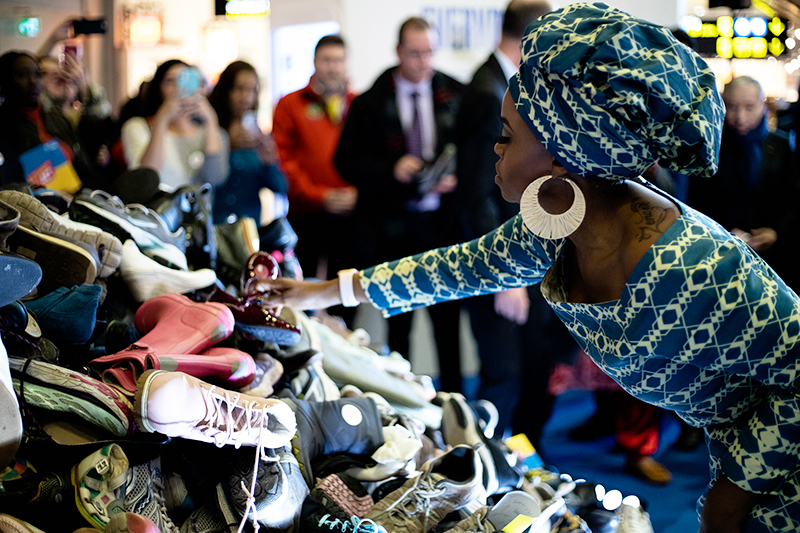
In a public display at Stockholm’s Central Railway Station FIA Foundation partner Global NCAP demonstrated the injustice of car-makers’ refusal to adopt a minimum floor of vehicle safety standards. In the first test of its kind, Global NCAP crashed the best-selling pick up model in Africa, the 2019 Nissan NP300 Hardbody, into a second-hand Nissan Navara NP300 manufactured in Europe in 2015. The unique car to car crash test graphically demonstrates the double standard currently applied by Nissan and other car makers to vehicle safety in Africa. Global NCAP CEO David Ward highlighted the consequences: "The difference in crashworthiness is extraordinary. The new Nissan Hardbody performs significantly worse than the second-hand Nissan Navara, to the extent that the driver in the new African Nissan would likely have died from their injuries but the driver from the second hand European Nissan would have walked away.”
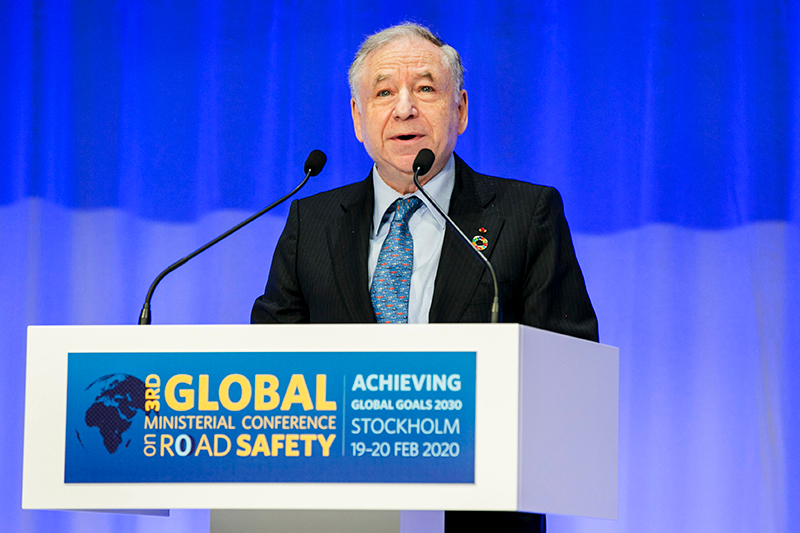
Car makers were noticeable by their absence at a meeting of the FIA's High Level Panel for Road Safety, chaired by Jean Todt at the Grand Hotel. The High Level Panel, also supported by the FIA Foundation, has been seeking to engage car makers in a ‘voluntary agreement’ to set a basket of minimum vehicle safety standards globally, but manufacturers are resisting. The car makers’ global representative body, OICA, instead published a weak report ahead of the Stockholm Ministerial, which offered no substantive action. The High Level Panel meeting did convene an impressive array of senior institutional leaders, who reviewed progress, discussed strategies for embedding road safety across society as a fundamental value and human right, and also held a session on how to improve financing flows to the issue. At a ministerial luncheon hosted by Jean Todt during the conference, ten new projects totalling $4 million were announced by the UN Road Safety Fund, to which the FIA Foundation is currently the largest donor.
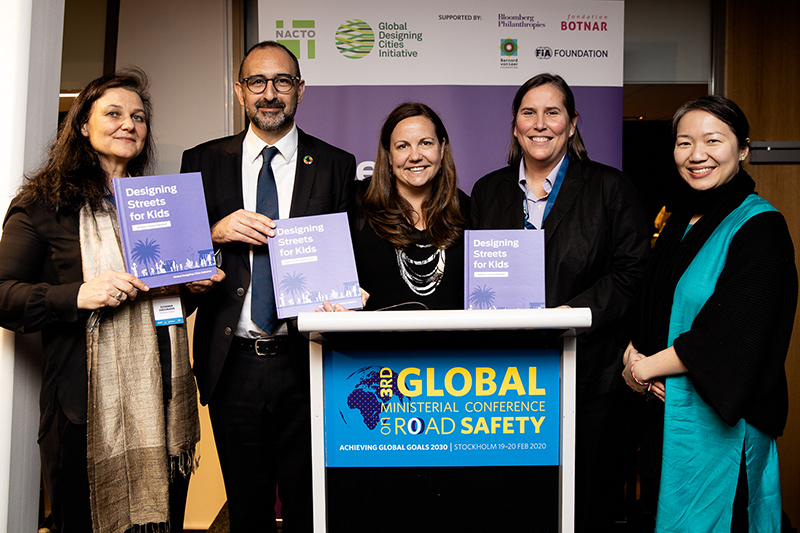
In his speech to the closing session of the Ministerial Conference, Jean Todt stressed the need for a step change in response from government and industry: “We must ensure that safety is the driving force behind the evolution of mobility and transport. This message needs to be also heard by the car manufacturers and suppliers, who were underrepresented at the conference this week: no more unworthy products. We can no longer accept them. Same for road investments: “killer roads” are a waste of resources. The money should be there - we have heard how the investment banks intend to make their contribution. States can do the same by supporting the United Nations Road Safety Fund and also how they arrange their own budgets at home.”
Many FIA Foundation implementation partners were present in Stockholm. Child-focused urban design was the focus of a series of showcase presentations at the ‘This Is My Street’ event, by NGOs including Amend, AIP Foundation, ITDP Mexico, EASST, World Resources Institute and Fundacion Gonzalo Rodriguez. iRAP’s new Star Rating for Schools tool was formally launched. And the FIA Foundation provided travel bursaries for more than 30 FIA automobile clubs to attend the conference.
The voices of civil society and youth were louder than ever at the Stockholm Ministerial. Zoleka Mandela addressed a successful and vibrant World Youth Assembly, which brought together more than 200 young people. Natasha Mwansa, an 18 year old Zambian youth activist, spoke out for action on adolescent health at the ‘This Is My Street’ event and also joined the youth assembly. The Global Alliance of NGOs for Road Safety organised a moving tribute to road traffic victims – a pile of shoes in the Central Station, symbolising the 3700 people killed on the roads every year. WHO Director of Social Determinants of Health, Etienne Krug, brought a pair of children’s shoes from the exhibition to the podium in the closing session.
As Sweden’s host minister, Tomas Eneroth, said in his closing speech, and in the closing video produced for the conference by the FIA Foundation: “Vision Zero can help to achieve so many other visions. The Stockholm Declaration sets out practical actions for road safety within the wider Sustainable Development Goals. It reflects the input and engagement by many countries and organisations, and some of the world’s leading experts. So now let’s all work together to translate these words in our Declaration into real action on every highway and street, for every community and every child.”
Speeches by FIA Foundation Chairman Lord Robertson of Port Ellen at the 3rd Global Ministerial Conference on Road Safety, Stockholm
Speech to International Assessment Programme Innovation Workshop, 17th February 2020
Speech to Child Health Initiative ‘This is My Street’ event, 17th February 2020
Speech to Global Ministerial Conference: Plenary Session on ‘Leadership’, 19th February 2020



